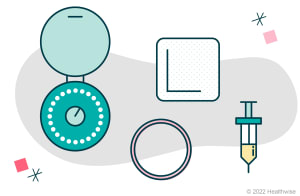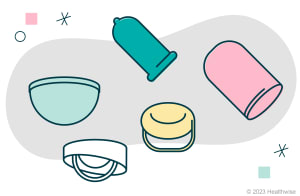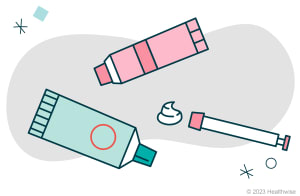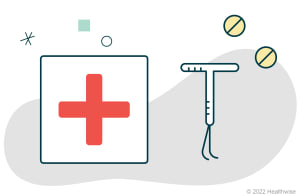Learning About Birth Control
Birth control is any method used to prevent pregnancy. If you have vaginal sex without birth control, you could get pregnant. The only sure way to not get pregnant is to not have sex. Finding birth control that works for you can help avoid an unplanned pregnancy.
What are the types of birth control?
There are many kinds of birth control. Each has pros and cons. Find what works for you.

Long-acting reversible contraception (LARC). These are placed inside your body by a healthcare provider. They can prevent pregnancy for years.
Examples include:
- An implant (hormonal).
- Copper intrauterine device (IUD).
- Hormonal IUDs.

Short-acting hormonal methods. These release hormones (estrogen and progestin, or progestin only).
Examples include:

Barrier methods. Use these every time you have vaginal sex.
Examples include:

Spermicides. These kill sperm or stop sperm from moving. They can be a gel, cream, foam, film, or tablet. Use them before vaginal sex. An example is nonoxynol-9.

Fertility awareness. You'll learn when you're most likely to become pregnant (fertile). You can avoid vaginal sex at that time.
It's also called:
- Natural family planning.
- The rhythm method.

Permanent birth control (sterilization). This can be an option if you're sure that you don't want to get pregnant later.
This includes:

Emergency contraception. This is a backup method. Use it if you didn't use birth control or your birth control method failed.
Examples include:
- Copper IUDs.
- Emergency contraceptive pills.
Where can you learn more?
Go to https://www.healthwise.net/patientEd
Enter R673 in the search box to learn more about "Learning About Birth Control".
Adaptation Date: 05/27/2024
Adapted By: Alberta Health Services
Adaptation Reviewed By: Alberta Health Services
